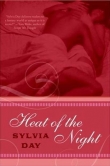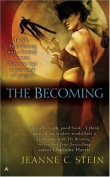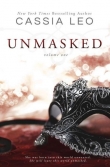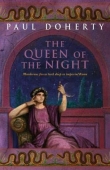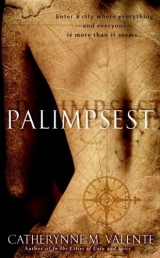
Текст книги "Palimpsest"
Автор книги: Catherynne M. Valente
Жанр:
Классическое фэнтези
сообщить о нарушении
Текущая страница: 2 (всего у книги 19 страниц)
No one had noticed.
Oleg retreated from the broad limbs of this new metropolitan giant and saw only the locks. He let people into places both secret and obvious, places they owned and places where they trespassed, into lovers’ hallways and grocers’ shops, into hotel rooms and abandoned buildings. Oleg did not care. He only wanted to touch the locks and find the keys for whom they wept. He saw nothing but the infinite city of locks, turning and winding through and around and behind the monochrome behemoth, and when the hours were very late, he often felt as though he could look through one lock and see all the others lined up behind it, opening up into forever, into a hundred thousand houses, into the Hudson, into the Atlantic. He could almost see the whitecaps breaking.
_______
Oleg had only once confessed to another soul that he knew the secret of what had happened to New York. He felt foolish about it later, but he could not help it—her name was Lyudmila. It was not his fault that that simple thing instilled so much trust in him, so much instinctive, automatic familiarity. Lyudmila had locked herself out of her tall, narrow house, where her cats mewled in panicked sopranos from within.
“That was my sister’s name,” he said softly as he put his eye to the lock in her brownstone, his lashes falling just inside the old metal.
The woman spoke to him hopefully in Russian. This occasionally happened, and he dreaded it. He could speak no more than a few words now, those snow-slushed consonants and swallowed vowels having receded into the same icy mist as Novgorod. He stopped her, blushed, admitted his forgetfulness. She only smiled, her hands white and cold, her blond hair swept heavily to one side of her face, spilling over the collar of her blue coat.
“It’s all right,” she said. “Remembering is very hard work. Not everyone is built for it. I asked if your sister lives in the city?”
Oleg shook his head, opening his tool casket. “She drowned, in the Volkhov, before I was born. She was wearing a red dress and black stockings—it was a cold day. My mother was pregnant with me, she closed her eyes for only a minute, to rest, and she always said she heard the splash in her bones before she heard it in her ears.”
“I’m sorry,” said Lyudmila, pulling up her collar as if to stave off icy waters a continent and a half away.
“These things happen,” he sighed, and the lock released its grip on the house with a loud click. Oleg felt as if his heart echoed with that click, unbuckled with it, bled out over the threshold of the door. His forehead was warm, his chest ached. It was only his third lock of the day, his service hardly even begun. He looked up at Lyudmila, the Lyudmila who was not his sister, who wore a topaz ring and had terribly long eyelashes.
“Invite me in, Mila,” he said, the boldness of the lock in him.
She looked alarmed for a moment but nodded slowly and ushered him into her small kitchen. As though it was his own house (and truthfully, as he had done in many houses that were not his before he had discovered a virtuous use for his passion), Oleg spread butter and salmon roe onto thick bread, sliced salted fish, filled two glasses with cold wine. Lyudmila let him, reclining placidly on her chair. She opened her mouth to speak several times, but instead simply watched him move, watched his hands on the bread, the fish.
They ate without conversation, and Lyudmila seemed to burn in the middle of the pale blue room like a little sun. She finally removed her coat after they had eaten, and Oleg saw a thing like a spider on her neck, black and blazing, a mark sending up tendrils along her jaw, which her long hair had hidden, brachiating lines like streets and alleys, so vivid and dark they seemed to pulse with her heartbeat.
“It’s a birthmark, or something like that.” She laughed shortly. “Or would be, if I had been born last year.”
“I don’t mind it,” he said softly.
“I’ve never been to Novgorod. I was born in Odessa. It is so warm there, so warm and the buildings are so white. When I remember it, I only remember the whiteness. And the seabirds. I am cold here all the time. Sometimes I wake up and I think I can still smell the Black Sea. How lucky you are, that you remember so little.”
Oleg moved his hand over hers—it must have been the turn of the lock, how easily it had come open in his hands, how flushed he had been with success, with its little sigh of relief that only he could hear. Only that could explain how he could dredge up courage to touch her like that, so soon, without permission. His blood beat too high, too fast. He was a shy man, he spoke little, after his mother’s habit. But he heard the key in her, weeping old, rusty tears.
“It’s usually harder than this,” she said quietly, looking down at their joined hands.
“What is?”
Lyudmila shut her eyes and her mouth together, pressing lids and lips tightly, as though to keep her whole self inside.
“To touch a person . . . to sleep with a person . . . is to become a pioneer,” she whispered then, “a frontiersman at the edge of their private world, the strange, incomprehensible world of their interior, filled with customs you could never imitate, a language which sounds like your own but is really totally foreign, knowable only to them. I have been so many times to countries like that. I have learned how to make coffee in all their ways, how to share food, how to comfort, how to dance in the native ways. It is harder, usually, to find a person who wants to walk the streets of me, to taste the teas of my country, to . . . immigrate, you could say. Especially . . . well.” She gestured at her painted throat.
Oleg touched her neck, the black lines there, hot and moving slightly with her pulse.
“I think I would like your country,” he said shyly. He said nothing of his own, too full of the dead and the locked.
He took her into his arms, holding her golden head to his chest—how cold she was! Her skin was frost-dry, and he thought he could hear seabirds inside her, flapping at the freezing joints of her shoulders.
Lyudmila, who was not his sister, lay her arms around Oleg’s neck like a child. He could not bear to breathe, but he kissed her blighted jaw.
“I’m married,” she said simply, casually, an announcement of no more importance than her address or height. She did not move from him.
“It doesn’t matter,” he said huskily, his voice sliding from him like the skin peeled from a black fruit. He took a long breath and whispered into her hair, “This is not a real place. Didn’t you know? Didn’t you guess? Everyone looked at it and looked at it, never blinking, working so hard at remembering, taking pictures and writing novels, and never stopping, even for a moment, and when you look at a thing like that, you kill it, like the ant and the magnifying glass. There is no Manhattan left. We float in the black, and see the Empire State Building where there is nothing but void. What does it matter what we do in a place like that? Who we marry? If we lie?”
Lyudmila kissed him then, and in her mouth was the void, and in his throat was the void, and in the dark of dead Manhattan he lifted her up against the pantry door, and the jars of jam rattled within, raspberry against currant against plum.
_______
When he returned home, his own lock relieved and welcoming, his sister was sitting in the kitchen with her hands clasped in her lap, staring at him with great dark eyes. He tried not to look at her.
“I missed you, Olezhka,” said the dead mouth of the other Lyudmila, her red dress far too small now, the weeds of the Volkhov still throttling her neck.
FOUR
THE BOOKBINDER’S WIFE
The pads of Ludovico’s fingers were scored with paper cuts like lines of longitude and latitude. They had long since gone the murky gold color of expensive glue, the kind one can be absolutely certain has its source in rendered beast—perhaps, if one is fortunate and paid a great deal of money, one as interesting as a camel or lynx. Ludo used those murky, malevolent glues almost to exclusion—he was interested in them, in tools, in origins. He liked to think that he bound his books with the sinew of a Chinese tiger. He liked to think that while he slept, the endless spines stretched and growled, licking the typesetting with wide, rough tongues.
Ludovico’s wife did not hear the prowling of the feline volumes in the dark. Lucia slept soundly, the form of her like a little hillock in his bed, her green nightgown barely rising, barely falling, part of the landscape of his house, so embedded in the soil of him that he often expected a flower to sprout from her shoulders, or wind up between their lips when they shared their morning kiss, as simple and necessary as a cup of coffee. Ludovico considered himself a contemplative man and held such thoughts as proof. The flowers that grew lightless in his skull were many and pale.
Lucia was not Catholic, rather, a hybrid: half atheist and half classicist. This had once given him pause, in the days when he, a good Roman boy, visited St. Peter’s and Trajan’s market with equal and untroubled reverence. She scorned the flat coin of his St. Isidore’s medal, hanging faithful and constant against his chest– what kind of man is beholden to a saint no one remembers? He’s not even Italian!And though he loved her he could not explain that St. Isidore, though in no official capacity did he serve men of Ludovico’s persuasion, seemed to him the great saint of books, haloed in bumblebees who demanded at least two full columns devoted to their sociology in the saint’s Etymologiae,that massive compendium of medieval knowledge, the first encyclopedia, possessing the whole world between its boards.
When Lucia descended into such contrary moods, Ludo simply kissed the place where her soft black hair faded into the skin of her temple, and recited to her Isidore’s thoughts on the contrary nature of the chimera. For that was Lucia—his chimera, his composite beast, his snarling, biting, kissing thing.
But how intricate and sweet were the figures she inscribed in the margins of his books! What sort of bookbinder could he have been without her, her infinite variation, her obsessive knowledge of ink? She did not hear the tiger-books, but she smelled the trees of India and the terror of cuttlefish in her finger bowls full of black and violet and brown, no less vivid than oil paint. Together, they rarely needed to speak as he cut the pages and wrapped the boards in coppery silk, as he set the type in their ancient printing press: a truculent old dragon in the corner of the kitchen where they had had the stove removed to make room for it. It ate paper and excreted books, and Ludovico loved it, while Lucia, hands on her hips, shamed it into yet another year of groaning, protesting service.
Their happiness was the kind which is fashioned of the comfortable disorder of sauvignon bottles and coffee cups in the sink, paperback thrillers with split spines on the nightstand, bathrobes hung haphazard on high-backed, brocade-seated chairs, shutters left open all night, and the hallway ever in need of new paint.
In the second winter of their marriage, when Ludo drove up to visit his brothers in Umbria and left his wife alone, Lucia had been possessed by the vexatious and serpent-tailed temper of the chimera that was only ever leashed, grumbling, within her. She burned all the furniture in that hall: the telephone table and four Japanese paper lamps, a year’s worth of ignored mail, and a reading chair Ludovico had especially loved. Without eating or sleeping for days upon nights, she covered the bare, vaguely yellowish walls with the entire text of the Etymologiae, in a tiny, wild script he had never seen her use before and would never see again. When he returned she was curled up on the floor of the hall like an exhausted fox, sleeping among the words of St. Isidore.
Ludo wept when he saw it, falling to his knees beside her. From then on he visited St. Peter’s no longer, but held his own, silent mass in the empty, illuminated hall, kissing the Spaniard’s words like rosary beads. He forgave her the chair, of course, and she forgave him his saint, having satisfied herself of Isidore’s sanctity with her own suffering.
Thus they lived, intractable, silent beasts, yet adored of each other. He brought her slivers of marble from the streets in the place of the flowers other women might love, and these she held against her cheek until they warmed like flesh. She brought him strange and foreign glues in pots like witch’s unguents, and they understood each other. Until it was that he set to the task of binding a new book for a miniscule specialty press in Florence.
The book had a great many strange and ugly illustrations, he suspected done by the author himself, a Japanese gentleman, a practice of which Ludovico did not at all approve. Bookbinding, however, is a luxury trade, and he could not afford to pick and choose projects. Papers and silks and boards crowded the house—though none touched the precious hallway, which remained bare as a pauper’s cupboard.
Having nothing to do with the commission, Lucia amused herself in the city, and Ludo saw little of her. He imagined, when she let the door close softly in the morning, a golden paw and emerald tail disappearing out of the door in place of her sleek black heels and the flick of a crisp, cream-colored dress. This made him smile, and the sun of many days passed through his thinning blond hair.
He did not notice it, therefore, until she was ministering to the printing press, ink smudged onto her cheek like a crow’s errant feather. Her back was to him, so that he saw the hollow of her knee. At first his gaze slid over it easily—what part of Lucia did not have ink splattered over it in the casual and elaborate patterns of any novitiate to a printing press’s mysteries? But it drew his eyes back to it, a pulse of thin, livid lines, like an impossibly complicated bruise, an arcane brand. It was bounded by cherubs blowing winds at her calves, like old maps, and a serpent humped near the south end of the grid—for it was a grid, a crooked, broken grid, angling over her skin, intersections and alleys and monuments labeled in the same miniature script that covered their hallway. He could not read the names, but he was sure they would be in Latin, Lucia’s clear and lucid favored tongue, and the only appropriate dialect for mapmaking, as well Ludovico knew.
“What happened to your leg?” he asked gently.
Lucia twisted to look over her shoulder, her waist crinkling, and extended her leg like a statue of Daphne in mid-tree. “Oh.” She sighed. “That. I don’t know. I went to the doctor, so you needn’t worry, I’m fine. It’s ugly, but, well, benign, I guess, is the word.” She put down a plate and crossed the kitchen to kiss his temple sweetly. “Maybe the books have taken a liking to me and have begun to dare kisses.”
“I’ve never printed a book like that.”
“Well, I can’t tell you what it is. I don’t know. Pretend your wild chimera-wife got a tattoo and don’t think about it.”
But he could not stop thinking about it, and the Japanese book receded from his care like water tossed from a window. He began, instead, to sketch the patterns of the grid on his wife’s leg in the margins of the errata copies, invading neat lines about the essential nature of trains and their conductors with serpents and winds. When Lucia dressed to go out in the evening, he begged her to stay, to crook her knee for him, to let him touch the stain, the grid, the map.
She acquiesced, and lay on her stomach so that he could examine her like a manuscript in desperate need of restoration. She pressed her face into the pillow; he pressed his lips to her skin, tasting the rough, salty roads printed there by whatever invisible press had hunted and leapt upon Lucia in the dark. Ludo closed his eyes against them, let his eyelashes shudder over their routes and byways. His tongue was a letter press on her, stamping out his desire. She tried to turn over, but he stopped her, unable to bear the disappearance of the knee-map. He kissed the backs of her thighs and slid his hands under her stomach, whispering her name with all the reverence of abandoned Catholicism, pressing his cheek to the side of her long neck, which he had always thought slightly too long for comfortable human proportion. He held her hair aside in one hand as he entered her, and she shut her eyes, silent, pliable as pages. He willed her to cry out, pushing harder, to hurt her, even, if she would only say his name, or moan, anything. But she did not, and he could not make her.
As they moved in an old and practiced pattern, his fingers found her knee again and felt the streets of some unnamable city tremble under his hand.
Hieratica Street
THEY DREAM AGAINST WARM BREASTSand empty beds of the four black pools in Orlande’s house. They stare straight ahead into her pink and gray-speckled mouth, and the red thread sweeps tight against their wrists. On four laps the frog-oracle lays four cards, but they do not look down, not yet.
But we may, we who peer. We who disturb.
On her bare knees sits the Flayed Horse, signifying Sacrifice in Vain, Loveless Pursuit, Fecundity Unlooked-For. Her blue hair brushes the hard, creased edges of the old card.
On his threadbare lap balances the Three of Tenements, predicting Auditory Hallucination, Cirrhosis, a Man Turned Away from Salvation. He fondles his keys, and the sound of it seems, to our eyes at least, to soothe him.
On her denim-shrouded thighs lies the Unhappy Rook, suggesting Grief without Name, Symmetry of Experience, an Empty Larder. She alone takes up the card, holds it to her cheek, covering the bee sting there with the plain, stark image of a broken chess piece.
On his linen trousers rests the Archipelago, foretelling a Plague of Eels, Loveless Pursuit, a Dark-Haired Woman with Two Fingers Missing. His ink-stained fingers dig into the meat of his palms.
They lace their hands together instinctively as she ties the yarn—all their many fingers tenuous and needful, blindly groping. Before their eyes Orlande’s great green head floats, rimmed in silver, like an icon. The frog-woman shows them a small card, red words printed neatly on yellow paper:
Go. You have been Quartered.
The knots slacken, fall away. The four of them walk out, across the frond-threshold, into the night which smells of sassafras and rum, and onto broad, cinnamon-colored Hieratica Street. They stumble into the cane-strewn night, their feet filthy, their heads swimming with the winds of a not-too-distant sea.
This is the part I like best. When they are so new. Newborn colts are not so innocent.
The frog pushes them out of her shop like a mother urging her children toward the coach on their first day of school: Never fear, my darlings! All these horrors are yours to survive!
Is it an accident of the clock that the four of them wheel dazed onto the thoroughfare at the same moment that a wave of crickets come hopping from the factory, bowing a complex binary minuet on their platinum legs? Or perhaps merely poetic? Casimira presses vermin beneath her porcelain and chitin molds, Orlande presses them beneath red yarn, and out they go into the city together, new and raw and empty as a saucepan. It is an admirable symmetry.
The four of them stand in a street cross-hatched with desiccated lily leaves, as though they did not know that one may be crushed there, staring dumbly at each other, a herd of idiot gazelles. They have not let go of each other’s hands; they cannot bear it: not yet, not yet!Their feet, benumbed, are overrun by crickets with glass wings.
There are obvious things to say, but none of the four of them can find a voice buried in their ribs. Will you stand there forever? Will you become a piece of statuary on which children will swing and clover will grow?
No—here is a gilded cart drawn by twin herons, their long black legs rustling the street-leaves. Out of the green-curtained window the head of a third heron, spectacularly turquoise, extends, eyes narrowed to avian slits.
“Out of the way! I shall trample you thoroughly, see if I won’t!”
The cart-herons squawk harshly and swing wildly around the quartet, galloping onto 16th Street with long, graceless strides. Eight hands shake free of each other; the men clutch their elbows in nervous agitation. The girl with blue hair stares at them with dark eyes.
“Which way to the trains?” she whispers to her comrades. Wrong question, child! You mean to say: Where am I? Who are all of you? What has happened to us?But no one ever asks after sensible things. The others shake their heads—they cannot help her. And so she runs in the direction that seems best, turning as sharply as the herons onto a brightly glowing avenue that shears off from Hieratica like a broken branch.
_______
Abandoned, the others scatter like ashes. The road stretches before and beyond, lit by streetlamps with swollen pumpkin-globes, and the gutters run with a sudden, utter rain.



